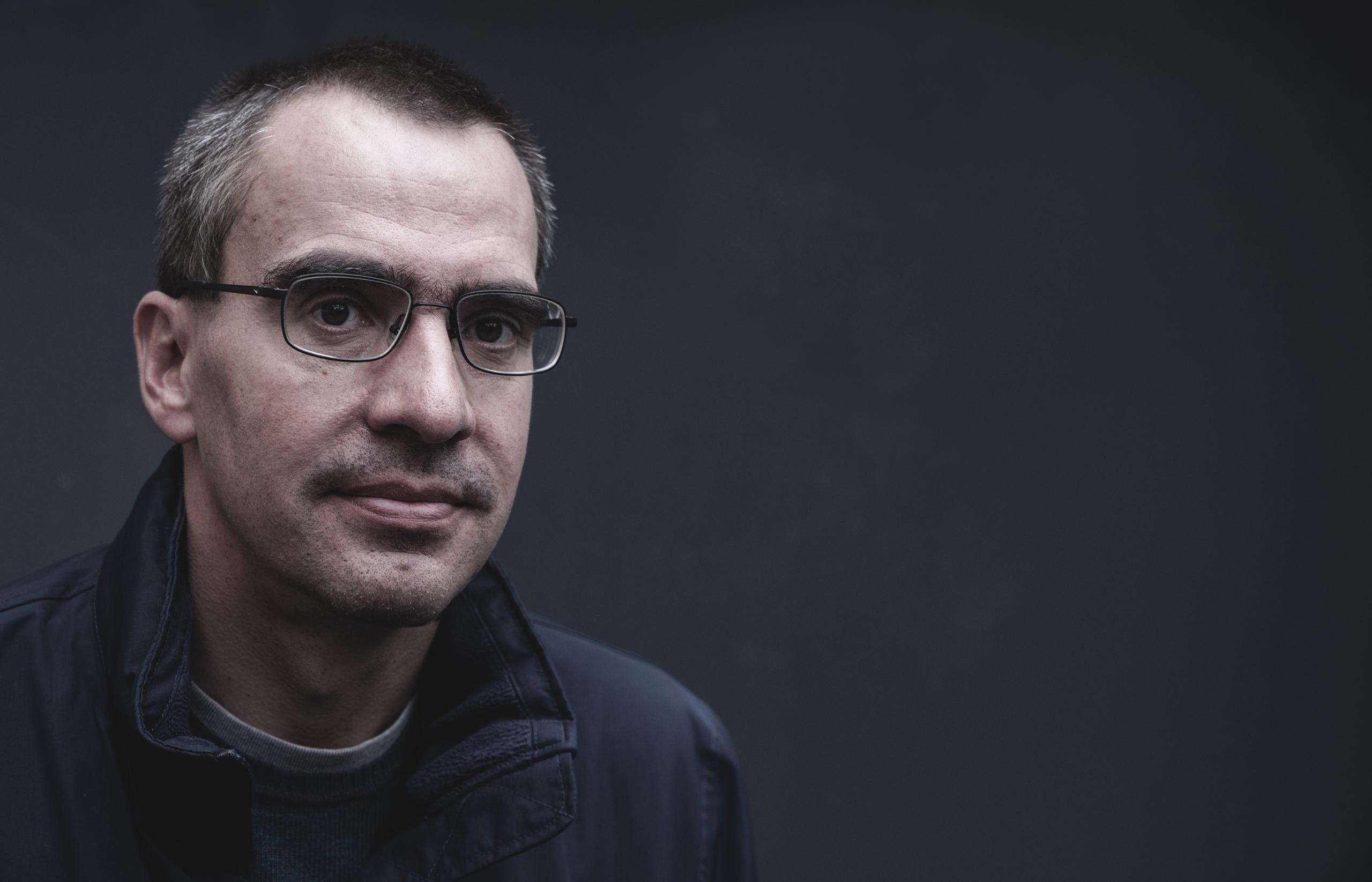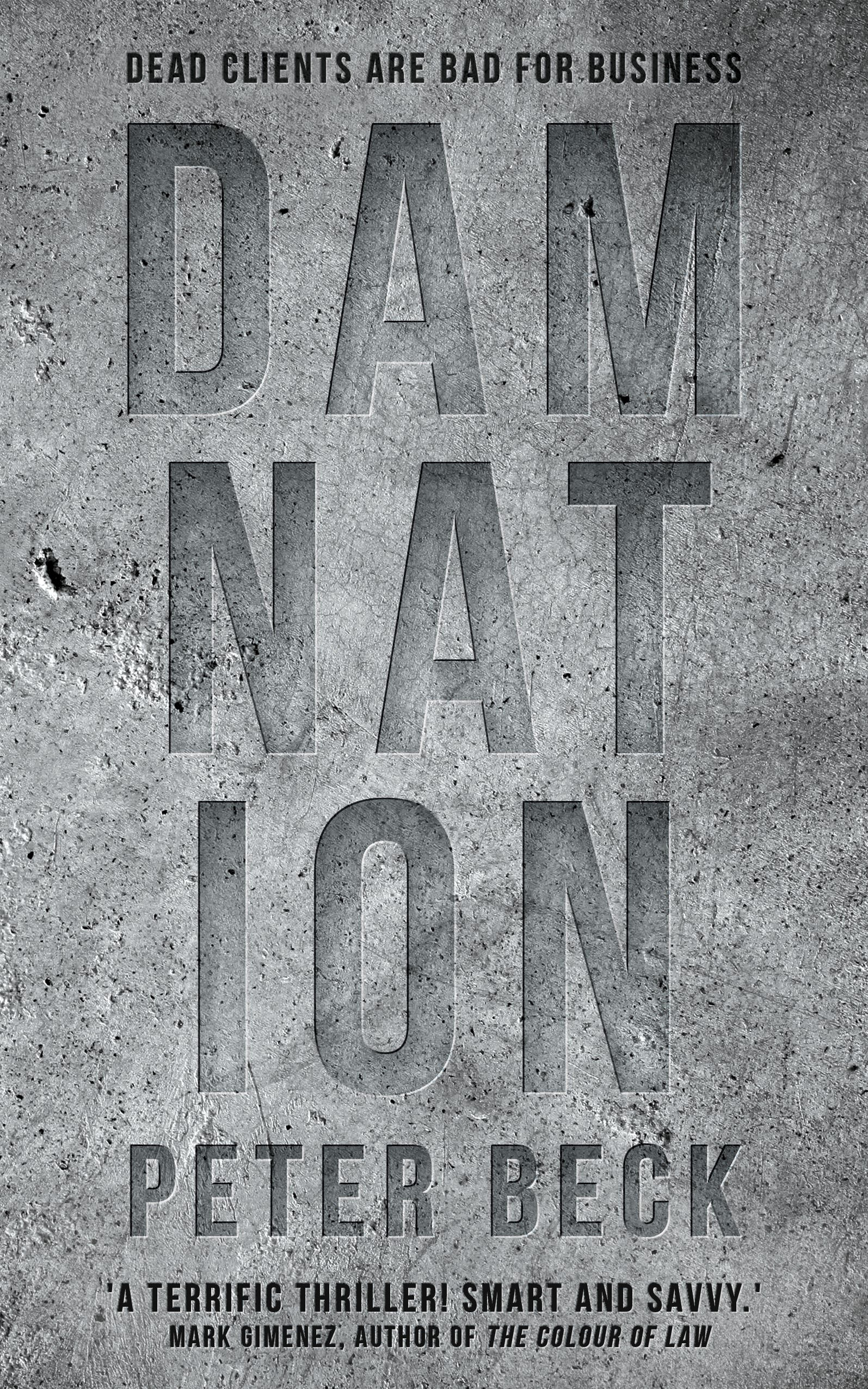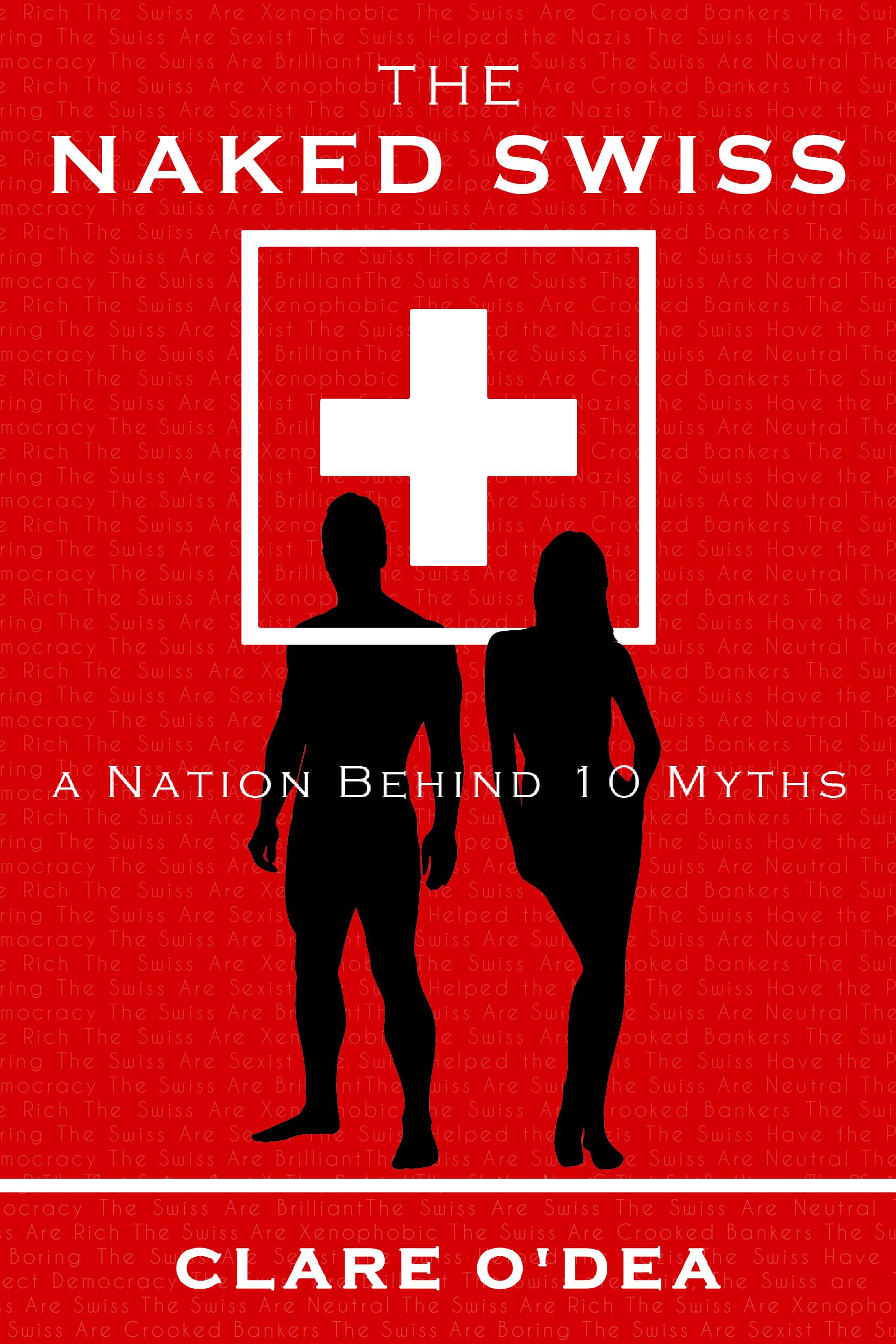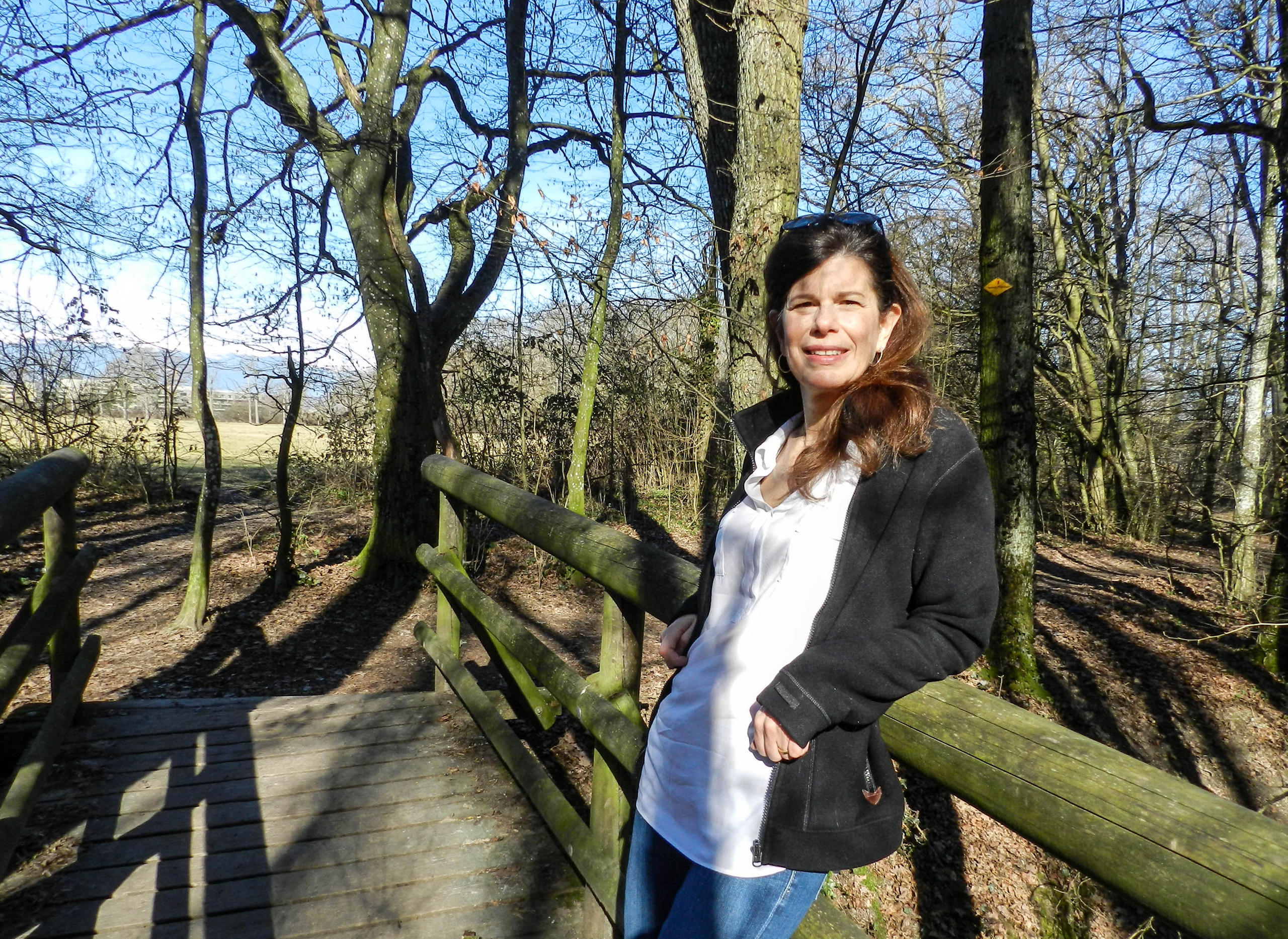Thriller brings a touch of noir to Swiss banking

While Scandinavian Noir is well established in English-language publishing, Switzerland has until now been a blank space on the map of popular crime fiction. Swiss author Peter Beck is trying to change all that with his gritty new hero Tom Winter. Clare O’Dea went to investigate.
The mild-mannered, casually-dressed man I meet in Bern train station does not look like he could have anything to do with exploding helicopters, death-defying car chases, cold-blooded murder, high finance intrigue and obscene luxury.
Yet this is the world that Swiss author Peter BeckExternal link has created in the first of his three financial thrillers, DamnationExternal link. The only thing Beck has in common with his protagonist, a former special forces commander and head of security with a Swiss bank, is his nationality and a taste for espresso.
Beck’s face lights up when he talks about Tom Winter. But the character didn’t come to him in a single flash of inspiration. Almost like a recruitment process, Beck looked hard for the right hero. His approach was clearly influenced by his background in psychology and corporate development.
“I wanted him to be free to investigate internationally so that ruled out a commissar-type protagonist. I considered an Interpol connection but I didn’t want my character to be in a bureaucratic setting. I also didn’t want a guy in a suit. I thought a lot about what the character should embody. It was a deductive process, and finally I arrived at the idea that he would be the head of security at a Swiss bank.”
Winter, Tom Winter
Winter bears all the key hallmarks of protagonists in the genre: unbeatable hand-to-hand combat and marksmanship skills, a beguiling way with women, and an ability to get out of impossibly tight situations without losing his nerve. But he is also a cat owner and a man of simple tastes who has built up a web of useful relationships.
In Damnation, Tom Winter criss-crosses the globe looking for connections on the trail of an investment consortium which could be involved in the death of one of the bank’s wealthiest Arab clients.

The investigation is personal because Winter’s girlfriend and colleague was also killed in the attack. The conspiracy turns out to be greater and more nefarious than Winter suspects, and he finds himself up against ruthless adversaries who are planning a breath-taking feat of financial disruption and physical destruction.
Insider knowledge
As we stroll around the author’s home town of Bern, where some of the action in Damnation takes place, Beck points out a non-descript entrance on a shopping street. “That’s just how I imagine the exterior of Winter’s bank would look like.” Beck’s insider knowledge of the Swiss setting adds authenticity to his writing.
Beck has drawn on Switzerland’s leading role and reputation in the world of high finance. With deals passing through Swiss banks that can shape the destiny of entire countries, there is plenty of juicy material to be reimagined in the pages of a thriller.
The other signature of Beck’s work is the inspiration of Anglo-American literature. He has always read in English and counts Le Carré, Grisham and Giminez among his influences. When Beck got a two-book deal for his financial thrillers with a London publisher, it was a dream come true for the Swiss writer.
Power asymmetry
As is usually the case, Beck’s path to publication was no overnight success story. Sitting in a fashionable Bern café with an overabundance of cushions, he reveals the struggle he went through. Damnation was written in 2008 and 2009 after Beck was made redundant. During the months he was waiting for his new self-employed business to take off, he turned to writing.
“When I finished the first manuscript I sent it out to the top ten German publishers but I didn’t get any response. The power asymmetry in publishing is cruel.”
Undeterred, Beck sent it out to the next ten on the list, still to no avail. An apparent breakthrough came when Beck was taken on by a big agency in Zurich, but this wasn’t the happily-ever-after Beck was expecting. Two years went by and the agency couldn’t sell his books.
“Then the young agent who was in charge of me went out on her own and I left with her. She tried again in Germany and found a publisher in Cologne that took the first book.”
That was 2012 and Beck’s first two books were brought out in German to popular acclaim. He still had his eye on the UK but his agent didn’t work in that market. They parted company and he began the hunt for a London representative.
Eventually Beck’s new agent got him a two-book translation deal with Point Blank, the crime imprint of Oneworld Publications, which had great success in recent years with two Man Booker winners.
The publisher got the award-winning translator Jamie Bulloch on board and Damnation, the first book in English is about to be launched in April 2018.
Crossing over
Since he first came up with the concept of the Winter series in 2008, Beck’s dream was to cross over into English. “I’m a long-distance runner. I don’t give up easily.” That tenacity is one more thing Beck has in common with his resourceful hero.
Beck has come a long way since he compulsively read all 75 of Simenon’s Maigret novels as a teenager. He always loved writing and got enough encouragement at different stages of his career, from his school days to his years in academia, and later as an MBA student and business executive, to believe he could one day become an author.
With his business hat on, he identified a niche. “I love Scandinavian noir and Scottish crime fiction too. I asked myself why there was no Swiss noir? The Swiss brand is that they are boring, they’re clean. I wanted something in the thriller or noir style. I did not see any other domestic thriller writers in German in Switzerland.”
Literary echoes
When the interview was over, I took my leave of Beck close to the Swiss parliament building, a scene that felt curiously familiar. Later I remembered why and found the relevant passage in Damnation when Tom Winter shows his love interest, Egyptian businesswoman Fatima Hakim, around Bern on a warm August day.
“They strolled to the huge square in front of the federal parliament. Children skipped around screaming in the delight, running through the water features and trying to avoid the fountains that sprayed vertically into the air.
‘Underneath here are the Swiss gold reserves,’ said Winter. ‘Look, that’s the national bank. Can you see the house number?’
‘The national bank is Number 1,’ Fatima said in surprise. ‘Not the parliament?’
‘That shows you the priorities in Switzerland.’”
A few pages later, the two are being shot at on a glacier. I’m glad to report that my journey home was uneventful.
An Irish-Swiss journalist based in the bilingual town of Fribourg, Clare O’DeaExternal link is the author of the 2016 non-fiction book, The Naked Swiss: A Nation Behind 10 Myths. Nominated for the 2017 Hennessy New Irish Writing Awards, Clare also writes fiction and translates books from German and French. Her career as a journalist spans three countries and two decades. From 2005 to 2015 she worked for swissinfo.ch.

More
Investigating 10 myths about Switzerland

In compliance with the JTI standards
More: SWI swissinfo.ch certified by the Journalism Trust Initiative












You can find an overview of ongoing debates with our journalists here . Please join us!
If you want to start a conversation about a topic raised in this article or want to report factual errors, email us at english@swissinfo.ch.